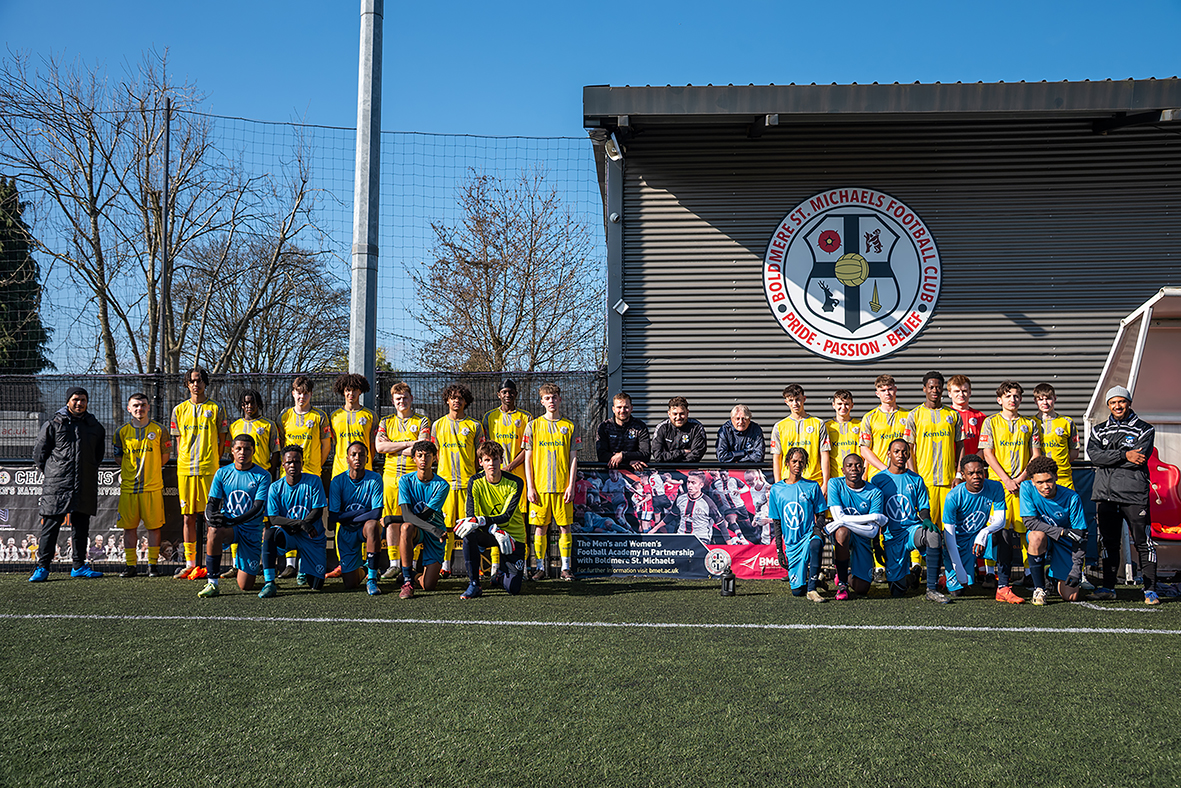From The Pitch To The Boardroom: The Broader Impact Of Footballing Intelligence

Recap On The Research
The first article in this series challenged the stereotype that footballers lack intelligence, demonstrating instead that elite players possess exceptional cognitive abilities, strategic thinking and adaptability. Ground-breaking research led by Associate Professor Leonardo Bonetti examined the cognitive and psychological traits of top-tier footballers, using AI to analyse massive datasets. The study concluded that elite players excel in decision-making speed, working memory, and problem-solving, placing them in the top 1-2% globally for cognitive flexibility. This suggests that footballing intelligence extends beyond instinct, requiring a highly developed mental skill set. And yet, media coverage of the research suggested that these conclusions were “surprising” because they contradicted the popular belief that footballers are “thick.”
This second article in this series will explore these issues further.
The Results Are Not Really Surprising
Footballers generally do not follow traditional academic paths, but their intelligence manifests in a different, highly specialised way. The misconception that footballers lack intelligence may stem from the conventional, narrow measurement of intelligence or ‘outputs’ from the education system rather than ability or talent. Many professional top-level players leave school early to pursue their careers, resulting in lower academic knowledge or lower grades rather than lower cognitive capacity.
Bonetti’s team found that elite footballers excel in cognitive flexibility, working memory, and strategic planning, which are all essential attributes for reacting swiftly in high-pressure situations. Their personality profiles also indicate high conscientiousness, extraversion, and openness to new experiences, alongside lower agreeableness and emotional sensitivity, traits which are likely to contribute to their competitive edge.
As Bonetti explains, football is an exercise in continuous problem-solving: “When you want to dribble, you need to see very quickly what the defensive player is doing and be faster. If you are a midfielder, you need to plan properly, see the right path, anticipate how defensive players move, then take a decision to calibrate a pass.” Scientific stuff.
Only 4% – 1 in 25 – of academy players, already a highly-selective group, make it to play in the premier league, so those that make it have to be exceptional. Reaching the pinnacle of football, or indeed any sport or profession, requires far more than physical talent. It demands great dedication and drive, exceptional problem-solving, rapid decision-making, and the ability to anticipate and adapt on the spot under pressure. It would be useful for young people to know this.
Despite the stereotype, these findings are not at all surprising.
Intelligence Has Many Forms: Gardner
The belief that intelligence is measured solely through academic performance is outdated. Footballers may not always excel in traditional educational settings but must process huge swathes of information in real time: anticipating opponents’ movements and making precise decisions, in high-stakes moments, which constitute a form of intelligence just as valuable as passing exams. It certainly pays more!
Howard Gardner’s Theory of Multiple Intelligences challenges the narrow academic definition of intelligence as a single measurable ability, arguing that it manifests in various forms, is diverse and encompasses cognitive strengths surpassing linguistic and logical-mathematical skills.
Gardner identified nine distinct intelligences:

His theory reinforces the need to adapt education and training to individual strengths. Crucial traits for elite footballers in the matrix include logical reasoning, spatial-visual awareness and “bodily-kinesthetic” intelligence. Traditional educational assessments might capture and measure linguistic and mathematical skills and build confident articulation, but they do not capture the fast decision-making, adaptability, and strategic thinking required in high-level sports.
Gardner’s theory is not only highly relevant and applicable in sports, but also in other areas like leadership and creative industries where different types of intelligence contribute to success. It reinforces the concept that intelligence is not one-dimensional but instead a broad and diverse set of skills which shape human potential.
Implications For Football And Beyond
Historically, footballing success was seen as a product of physical ability and technical skill alone, but this latest research confirms that cognitive ability is just as crucial. For clubs and talent scouts, cognitive assessments could become a valuable tool in identifying future stars and refining young talent development strategies.
Professor Predrag Petrovic of Karolinska Institutet highlights that this research goes beyond talent identification in football, offering a deeper understanding of the connections between cognition, personality and behaviour. The study suggests that highly collaborative and fast-paced activities, like football, may have played a role in shaping human cognitive evolution, reinforcing the idea that intelligence manifests in diverse ways. The ability to process information rapidly, anticipate complex situations, and make split-second decisions under pressure is not just a footballing skill but a form of intelligence applicable to a wide range of disciplines.
These findings have far-reaching implications beyond football. Mental sharpness and character development alongside physical training both ‘on and off the pitch’ are important in shaping how we evaluate talent across many fields. In music and the arts, for example, similar cognitive strengths such as pattern recognition, adaptability and creative problem-solving are essential. There have been similar studies finding that politicians, too, exhibit comparable identifiable traits, including high energy and agreeableness, which can be key predictors of success in leadership roles, business and broader society.
Moreover, this research opens the door for long-term studies into how cognitive abilities and personality traits evolve over a person’s career. It raises critical questions about whether specific training programmes could enhance these cognitive skills, leading to improved performance not only in elite sports but also in corporate, creative, and leadership settings.
AI Modelling Can Predict Future Behaviour
AI is already transforming youth sports recruitment by enhancing talent spotting, performance analysis, and player development. By processing game footage and tracking key metrics like speed, agility and decision-making, AI helps scouts and coaches objectively assess young athletes. No more need for a guy in a raincoat at the side of the pitch. Already used by professional academies through platforms like Hudl and StatsBomb, AI is making recruitment more precise, data-driven, and efficient, ensuring clubs invest in players with both the physical and cognitive attributes needed for elite success.
In the same way that AI was used in the latest study to analyse and distinguish numerous characteristics of elite players, AI-driven cognitive and psychological assessments can measure football intelligence, resilience, and leadership, while injury prevention models can be used to analyse workload and biomechanics to reduce risk.
Additionally, in time, predictive analytics will forecast future potential by evaluating data on elite player traits and growth patterns and will be used to develop models to ensure promising talent is identified and not overlooked. AI could also be used to reduce human bias in recruitment, expanding opportunities for underrepresented parties. Using AI models, the critical skills necessary for success across various fields can be identified and tracked. Interventions during the developmental stage can shape the optimal psychological profile for not only footballers but also other professions.
This approach could revolutionise talent identification in multiple industries.
The predictive models developed from analysing personality and cognitive testing data could also be applied to business, education, and creative industries, helping to refine recruitment and development strategies.
It’s No Longer Fantasy
The Bonetti study’s findings challenge traditional views of intelligence, reinforcing the idea that success isn’t just about academic achievement but also about cognitive flexibility, strategic thinking, and emotional intelligence – skills which enable performance across all professions. As Bonetti hopes, this study may inspire young athletes and their parents to recognise the equal importance of mental and physical training.
By decoding and modelling what makes elite footballers exceptional, this research sheds light on the broader psychology of human excellence. Traits like executive function, planning, and memory may have been shaped by active group interactions throughout human history, such as cooperative activities like hunting. This serves as a powerful reminder that success, whether on the field or in life, is a combination of physical ability and mental brilliance.
As Dr. Leonardo Bonetti puts it: “Being an elite player is about more than just physical fitness or technical skills; it’s also about having a keen and adaptable mind.” This study has opened the door to a deeper understanding of the intelligence behind the people’s game and the applications beyond.
The role of artificial intelligence in this is no longer fantastical, it is really enabling a change in what it means to be really “intelligent” and successful in life.
By Neil Wolstenholme, Chairman of Kloodle











Responses